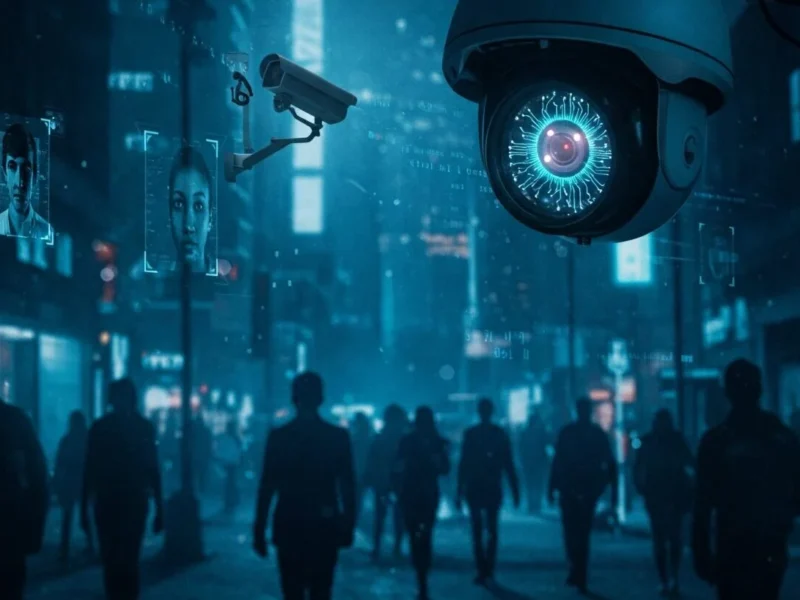Introduzione – L’occhio digitale e il nostro futuro
Viviamo in un mondo sempre più trasparente: la tecnologia ci connette, ci informa e ci semplifica la vita. Ma allo stesso tempo lasciamo dietro di noi una scia continua di dati, che alimenta sistemi di sorveglianza basati sull’intelligenza artificiale (IA). Sistemi capaci di osservare, analizzare e persino prevedere le nostre azioni.
Questo solleva domande cruciali: chi ci protegge dalla sorveglianza che dovrebbe proteggerci? Come possiamo bilanciare la sicurezza con il diritto alla privacy?
L’IA come sorvegliante invisibile
L’IA è in grado di elaborare enormi quantità di dati in tempo reale:
- Facial recognition
- Telecamere intelligenti
- Analisi predittiva del comportamento
- Profilazione sociale
Questi “occhi digitali” sono ovunque: per strada, nei negozi, sui social, nei nostri smartphone. L’IA collega segnali apparentemente banali — un like, un acquisto, una posizione GPS — per costruire profili dettagliati che raccontano chi siamo, cosa facciamo e cosa potremmo fare.
👉 Approfondisci: IA e Privacy Digitale
Sicurezza o controllo? Il doppio volto dell’IA
La sorveglianza predittiva offre vantaggi reali:
- Prevenzione dei reati
- Ricerca di persone scomparse
- Protezione di infrastrutture sensibili
Ma c’è un prezzo.
Un ambiente ipersorvegliato può produrre autocensura, ansia sociale, discriminazione, e — in casi estremi — abuso di potere.
Algorithms non sono infallibili: possono generare falsi positivi, etichettare come “sospetti” soggetti innocenti, amplificando disuguaglianze esistenti.
Privacy: un diritto da non sacrificare
La privacy non è un lusso. È un diritto fondamentale. Significa poter vivere, scegliere, comunicare senza essere osservati o giudicati costantemente.
Oggi questo diritto è messo a dura prova dalla profilazione automatizzata:
- Algoritmi decidono quali pubblicità vediamo
- Valutano la nostra affidabilità creditizia
- Influenzano persino le decisioni lavorative
Le conseguenze sono sociali, non solo individuali:
⚠️ Discriminazione
⚠️ Manipolazione
⚠️ Limitazione della libertà di scelta
Quali soluzioni? Diritti, tecnologie e partecipazione
Serve un nuovo equilibrio. La sicurezza non può venire a scapito della libertà.
Ecco alcune azioni concrete:
- Leggi chiare e vincolanti: che regolino l’uso dell’IA nella sorveglianza pubblica e privata
- Tecnologie privacy-friendly: anonimizzazione, crittografia, privacy by design
- Trasparenza e diritti digitali: accesso ai propri dati, possibilità di modificarli o cancellarli
- Partecipazione pubblica: dibattito informato che coinvolga cittadini, esperti, legislatori
Fonte autorevole esterna: EDPS – european data protection data
Conclusione – La bussola etica per il futuro
L’intelligenza artificiale può contribuire alla sicurezza, ma non può diventare uno strumento di controllo sociale diffuso.
Per navigare questo futuro serve una bussola etica: uno strumento che metta la persona, la libertà e la dignità al centro del progresso.
Il futuro della società digitale non sarà deciso solo dal codice degli algoritmi, ma dai valori che scegliamo di difendere oggi.
